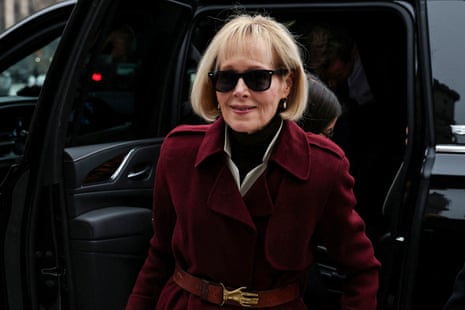
E Jean Carroll's defamation trial against Donald Trump resumed with an unconventional cross-examination by the former president's lead attorney, Alina Habba, who sought to discredit Carroll by delving into her social media activity and implying loose morals.
Habba began by asking Carroll about sexually explicit tweets, leading to objections from Carroll's legal team and a sustained objection from the presiding judge, Lewis Kaplan. The questioning then took an unusual turn as Habba focused on philosophical questions about genitals from Carroll's past tweets.
Carroll admitted to posting such content on her public social media account and explained that the tweets were meant as philosophical inquiries into the dynamics of intimate relationships. The exchange highlighted the attempt to paint Carroll in a certain light during the trial.
The trial, taking place in a Manhattan federal court, aims to determine financial penalties against Trump for his denials of Carroll's rape allegation in 2019. Carroll, a former Elle columnist, accused Trump of assaulting her, and the trial revolves around the impact of Trump's public denials on her reputation.
During Carroll's testimony, Trump's lack of courtroom decorum drew attention, with reports of him making statements loudly throughout the proceedings. Judge Kaplan issued warnings to Trump to keep his voice down, cautioning that disruptive behavior could lead to exclusion from the trial.
This trial marks the second legal battle involving Carroll's claims against Trump. The first trial in 2022 found Trump liable for sexual abuse and defamation, awarding Carroll $5 million in damages. The key facts from that trial are accepted as true in the current proceedings.
Habba, in cross-examination, attempted to sow doubt about the threats against Carroll, questioning her decision not to report them to the police. The defense also sought to challenge the extent of damage to Carroll's reputation, suggesting she had opportunities to enhance her status through Substack and TV appearances.
Ashlee Humphreys, a Northwestern University marketing professor, testified about the reputational harm Carroll endured due to Trump's comments. Humphreys estimated that correcting the damage could cost from $7.2 million to $12.1 million, based on the number of views and impressions of Trump's statements.
The trial's focus on the impact of Trump's denials on Carroll's reputation brings attention to the broader issue of the consequences of powerful figures' public statements and their potential financial repercussions in cases of defamation.
